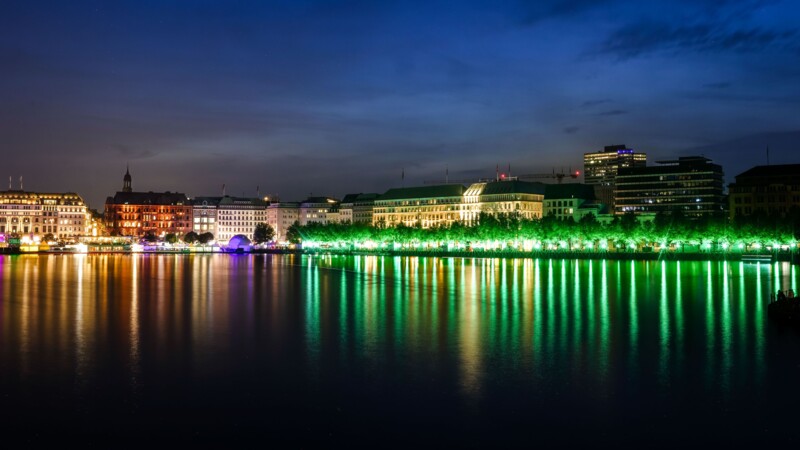During his opening remarks, German Chancellor Olaf Scholz, said: "This conference picks up where the UN Sustainable Development Summit in New York left off." Led by Germany and Nambia, the conference in late September resulted in a pact to pursue more effectively the SDGs adopted in 2015. At present, only 15 per cent of 140 foreseen measures are on track to meet the original goal of implementing the SDGs by 2030, prompting Scholz to speak of a "race to catch up". He stressed: "Governments alone cannot turn the tide." Private stakeholders and investors are needed. "The SDGs cannot be achieved without the expertise and investment of the private sector." Yet, private sector investment requires certainty. To this end, the World Bank has set up the Private Sector Investment Lab. "This will lead to keener focus on e.g., regulatory certainty, more guarantees, or lowering exchange rate risks to mobilise more private capital," said Ajay Banga, World Bank President. The need for an equitable, international financial architecture proved a recurring theme in more than 60 sessions during HSC, similar to the belief that growth and sustainability must be considered together to secure financing.
Around 1,600 delegates from over 100 countries attended the first Hamburg Sustainability Conference (HSC) amid a polyglot of languages on October 7-8, 2024. India’s Pralhad Venkatesh Joshi, Minister for New and Renewable Energy, remarked: “I travelled especially for this conference. Working together is essential for achieving a sustainable future for everyone.” Stakeholders in politics, commere, academia and society had come together in Hamburg’s City Hall and the Chamber of Commerce to advance the United Nations 17 Sustainable Development Goals (SDG), forge new alliances and launch initiatives that benefit the world’s 8 billion people and safeguard natural resources at the same time.
HSC triggers catch-up race
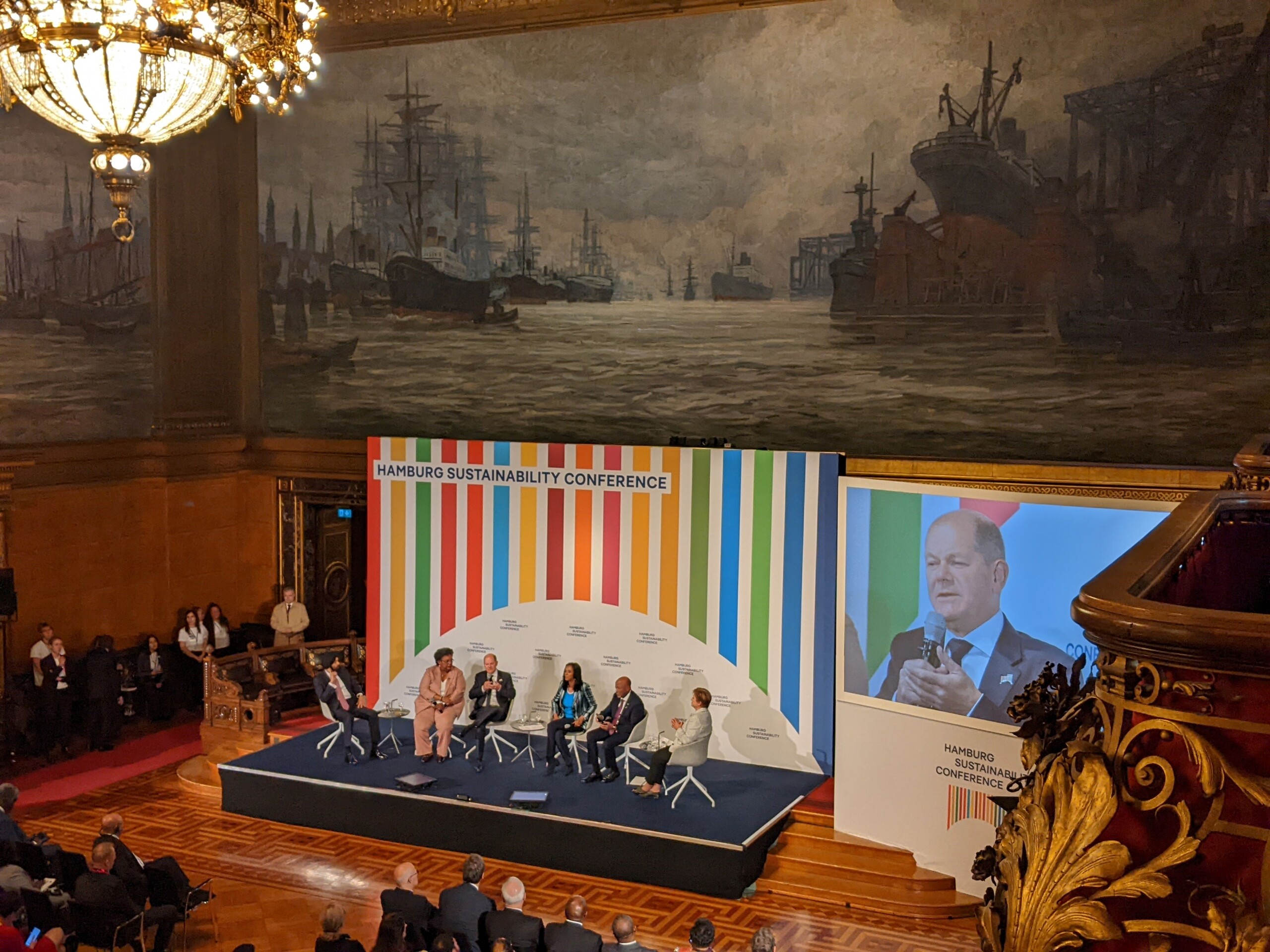
Sharing successful solutions
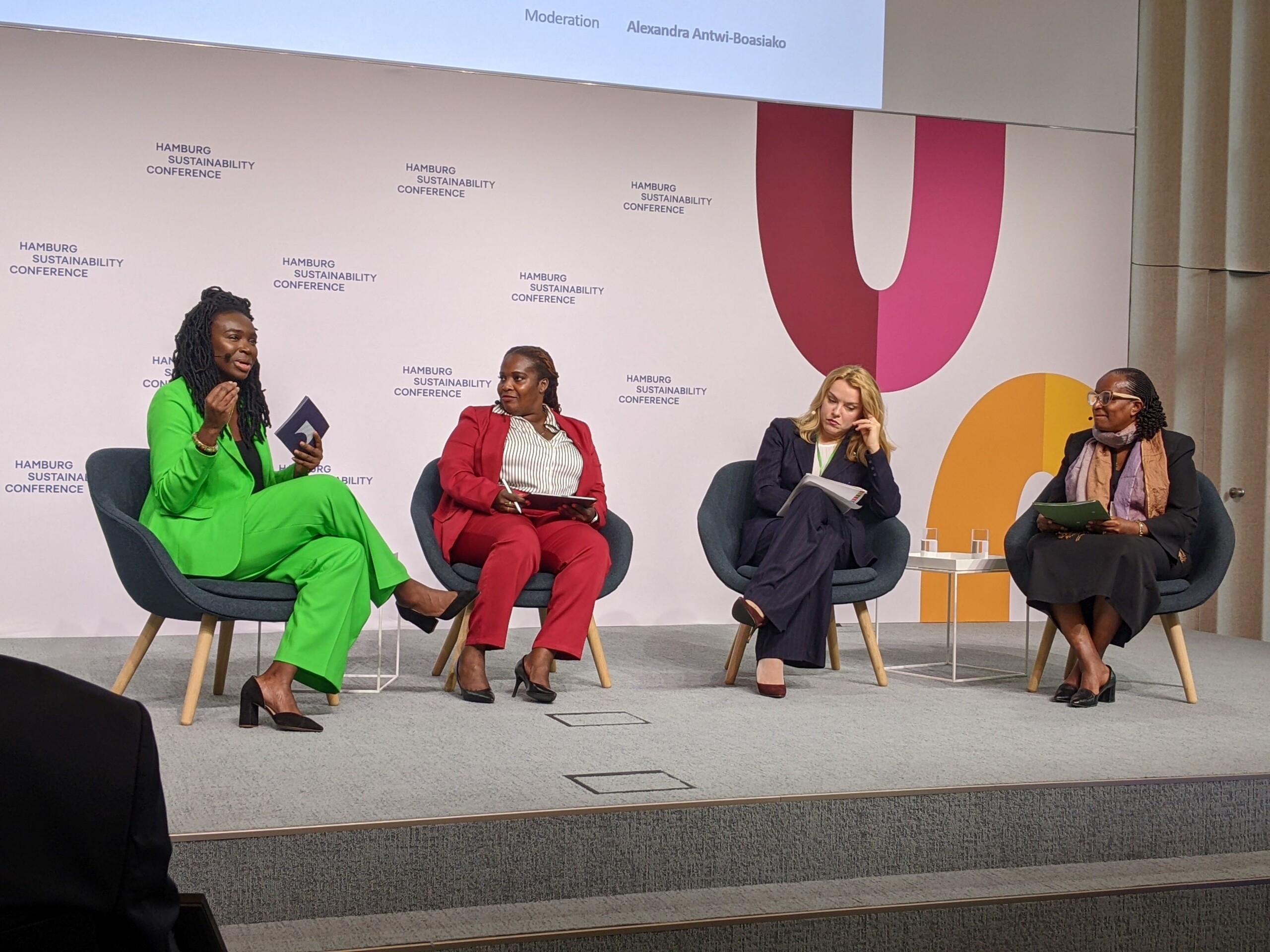
Cities can play a leading role in achieving the SDGs. "More than half of the world's population lives in cities. They consume 80 per cent of the world's energy, produce 70 per cent of greenhouse gas emissions and more than half of its waste," said Peter Tschentscher, Mayor of Hamburg. Cities are also centres of social and technological progress and can share successful solutions. The City of Hamburg is in contact with Helsinki and Nantes, among others, on smart mobility solutions, and with London and Copenhagen on sustainable strategies for the construction industry. During HSC, Tabu Shaibu, Acting City Director of Dar es Salaam, with which Hamburg is twinned, presented a successful "zero waste" approach that conserves valuable resources and has created new green jobs in her country.
Decarbonising maritime sector
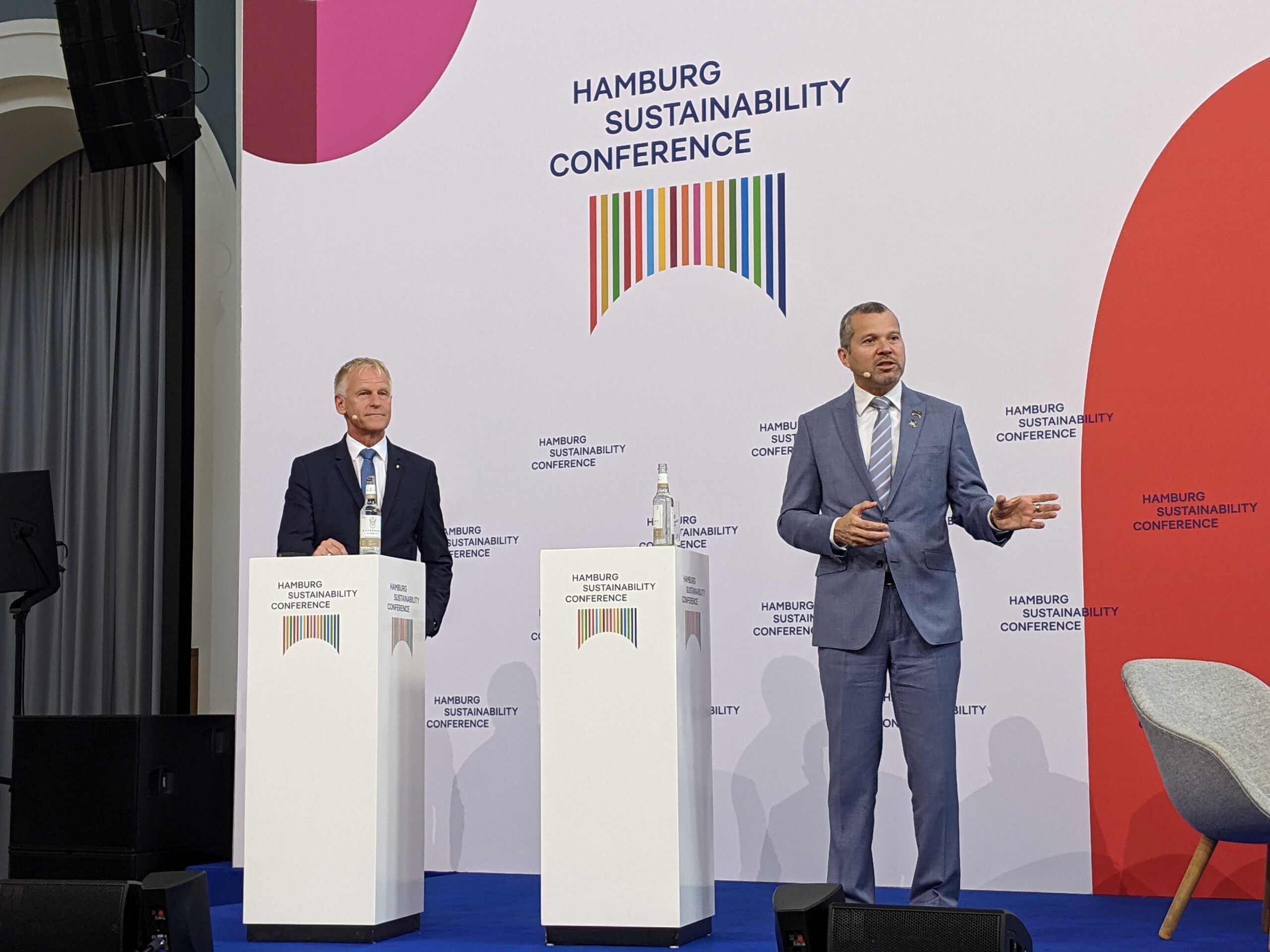
As Germany's largest seaport, Hamburg played a key role as host. Two thirds of the world's traded goods are transported by sea. Thus, stakeholders in the Port of Hamburg are keen to decarbonise the maritime sector and have set their sights on making the port carbon neutral by 2040 as reflected by the Hamburg Port Development Plan. "This transformation is a huge challenge. But it is already leading to greater safety, efficiency and sustainability," said Jens Meier, CEO of HPA. The IMO, in turn, is targeting carbon-neutral shipping by 2050. Shipping accounts for more than 80 per cent of CO2 emissions caused by international trade and almost 3 per cent of global emissions. Alternative fuels are considered key to climate neutrality. However, the question remains as to which fuel shipping companies should rely on, according to Mirja Nibbe, Managing Director of CMA/CGM: "Neither methanol nor LNG are yet available in sufficient quantities. And Bud Darr, Executive Vice President of the Mediterranean Shipping Company, added: "We're investing in ships that run on alternative fuels that don't even exist yet.”
Fuels, fuels and more fuels

Propulsion systems and fuel are central to climate-neutral aviation in future. But will aviation go electric, or will it be powered by hydrogen or Sustainable Aviation Fuels (SAF) produced from non-fossil resources? Airbus aims to put the first hydrogen-powered aircraft in the skies by 2035," says Nicole Dreyer-Langlet, Head of Research at Airbus, "but this requires sufficient green hydrogen and a viable infrastructure, which is currently being developed worldwide." Melanie Kreis, CFO of DHL, said: "We are very interested in using synthetic fuel and last year we bought about 14 per cent of the available SAF. That sounds like a lot, but it represents only 3 per cent of our fuel needs.” Producing SAF on an industrial scale should become a common goal. Artificial intelligence (AI), for instance, could hold the key to greener aviation facilitated by technology-driven efficiency improvements.
Responsible AI - key

The potential of AI for a more sustainable future is by no means limited to the aviation sector. "But we need to ensure that everyone has access to it, so that the technology can become an enabler," said Achim Steiner, Head of the United Nations Development Programme (UNDP). However, this access is by no means given at the moment, according to Hindou Oumarou Ibrahim, a civil rights activist in Chad. "AI needs electricity. In my country, we don't even have enough electricity for light." Addo Dankwa Akufo-Addo, President of Ghana, stressed: "AI must benefit everyone, otherwise the technology will cement the existing inequality in the world." Ethics, sustainability and equal participation must be considered from the outset as more AI tools are developed. "This requires a collective, global effort. But it's worth it. Making the right choices today will lead to a brighter future.”
Balance of HSC
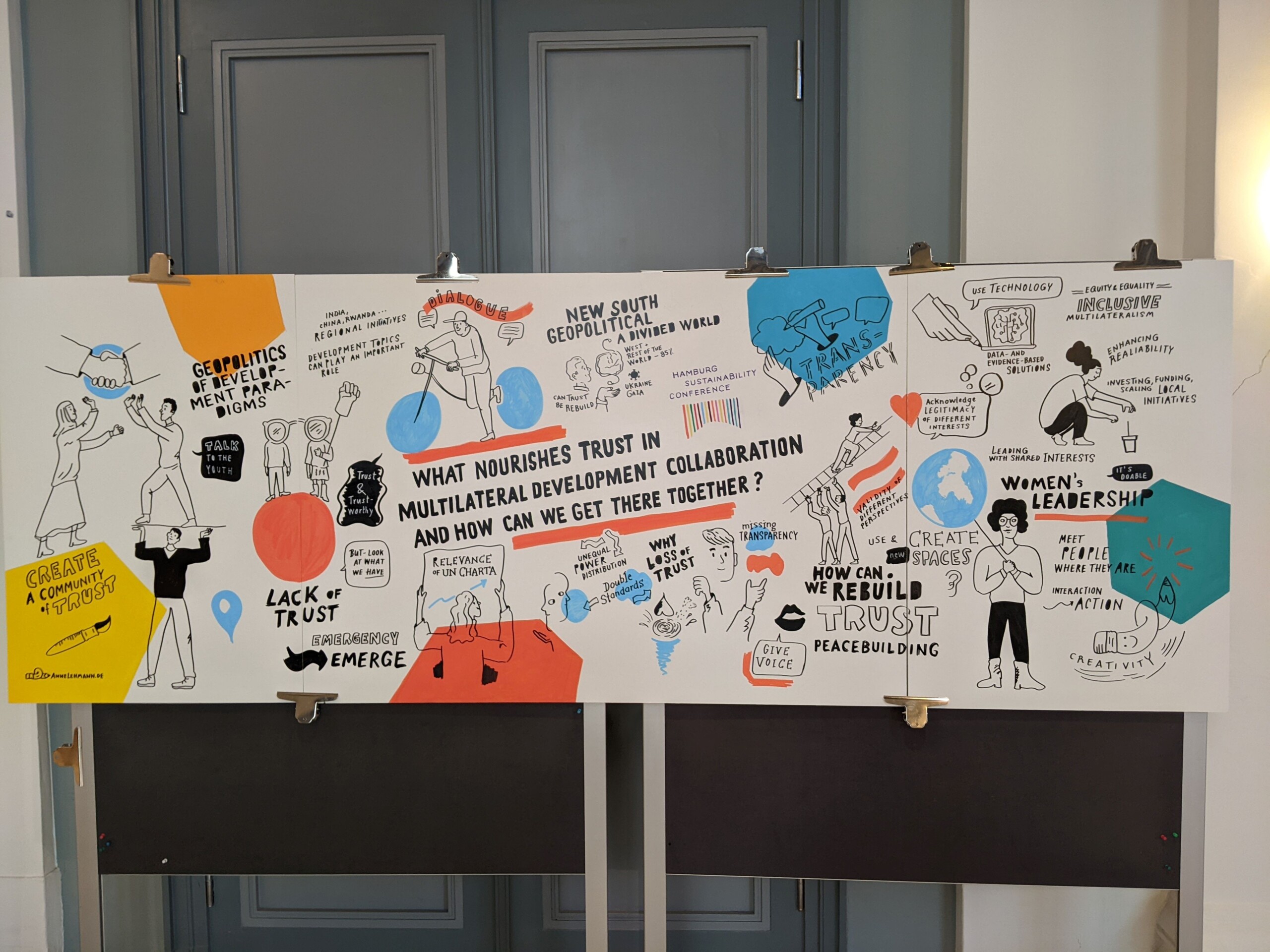
HSC went far beyond the optimism that prevailed during the conference. More than 15 agreements were signed between governments, business, academia and society. Svenja Schulze, Minister for Economic Cooperation and Development, noted: "We brought together new alliances for concrete solutions, such as CO2-free shipping, fair production of green batteries, more private investment in sustainability and socially-designed transformation." More collaborations were forged during talks and panels on the future. And bilateral talks are urgently needed. Thus, it comes as no surprise that the second HSC has been announced for June 2-3, 2025.
ys/sb/pb
Sources and further information
Hamburg Sustainability Conference
The first Hamburg Sustainability Conference (HSC) was initiated by the German Ministry for Economic Cooperation and Development (BMZ), the United Nations Development Programme (UNDP), the City of Hamburg and the Michael Otto Foundation. This first global conference brought together global leaders in politics, commerce, academia and society for bilateral talks in the Chamber of Commerce Hamburg and City Hall and was attended by 1,600 delegates from more than 100 countries. The HSC is set to become an annual conference and will next be held on June 2-3, 2025.
More
Similar articles

OECD study reveals how Hamburg can become climate neutral
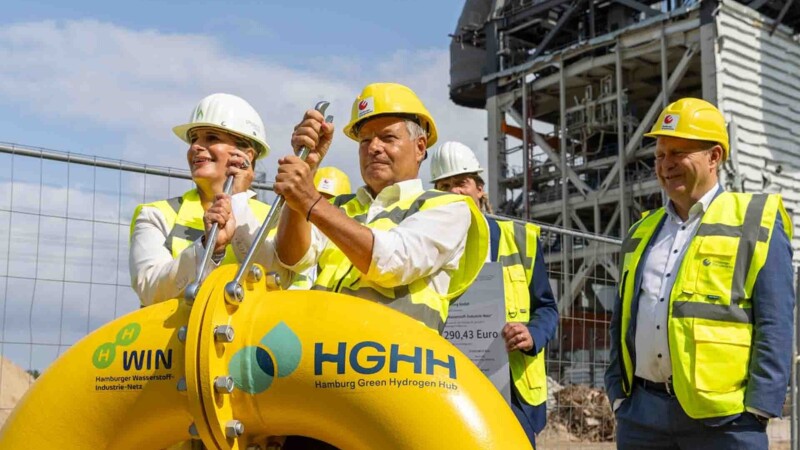
Hamburg starts building hydrogen infrastructure

Hamburg decarbonising heating networks
